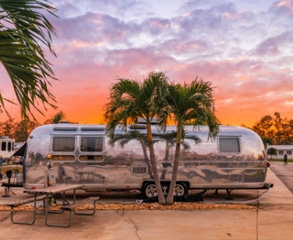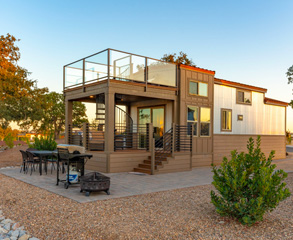Embracing a Greener RV Lifestyle: Tips for Eco-Conscious Travelers
With a growing number of retired and semi-retired baby boomers, the RV industry has experienced a resurgence in sales reminiscent of the early 1990s.
This lifestyle appeals to many because it offers control over travel schedules and destinations. Additionally, many baby boomers prioritize eco-friendliness in their travel plans, aiming to reduce their environmental impact while enjoying their adventures.
Reduce, Reuse, Recycle: Sustainable Travel Practices
Reduce
When shopping for RV necessities, consider opting for non-toxic cleaning supplies and tank additives. Choose products with minimal packaging and support locally made, organic, or natural items. Reducing waste begins with small actions, such as crushing cans and breaking down cardboard boxes to conserve space in your RV.
Reuse
Minimize disposable items by utilizing reusable alternatives like plates, cutlery, water bottles, and grocery bags. This approach not only helps the environment by creating less waste but also saves you money in the long run.
Recycle
Recycling while traveling is essential for both the environment and as a courtesy to campgrounds and RV resorts. Be aware of local recycling regulations, as they can vary by state. Always separate recyclables to ensure they are disposed of properly.
Harnessing Solar Energy
Installing solar panels on your RV can significantly reduce reliance on generators, cutting down energy costs. With up to 90 percent less generator use, solar power is an investment that pays off in both financial and environmental terms. Nearly 20 percent of RVers now utilize solar panels, making this a growing trend in the RV community.
Greener RV Manufacturing Practices
RV manufacturers are increasingly focusing on eco-friendly practices. By utilizing lighter materials such as aluminum and fiberglass, they enhance fuel efficiency and reduce overall weight. Additionally, advancements in aerodynamic design mean that compact RVs can rival the fuel economy of some SUVs and pickups.
Manufacturers are also adopting eco-friendly materials in the interiors of RVs, including green textiles, renewable woods, and LED lighting. These innovations contribute to a more sustainable RVing experience.
Additional Eco-Friendly Tips and Tricks
- Utilize Awnings: Instead of relying solely on air conditioning, use awnings to keep your RV cool, saving energy and money.
- Consider Flex-Fuel Rigs: Opt for RVs that can run on E-85 Ethanol-based fuel, which is more environmentally friendly.
- Practice "Pack It In, Pack It Out": Ensure that everything you bring into nature comes back with you, maintaining cleanliness for future visitors.
- Maintain Engines: Keep your RV and tow vehicle engines in good working order to conserve fuel and reduce emissions.
- Mind Your Campfires: If allowed, keep campfires small to minimize ash and air pollution. Always check fire regulations, as they may vary based on weather conditions.
Start the Eco Lifestyle Today
Adopting a greener RV lifestyle is not only beneficial for the environment but also enhances your travel experience. By incorporating sustainable practices into your RV adventures, you can enjoy the beauty of nature while minimizing your ecological footprint. Happy travels!
Related Posts









